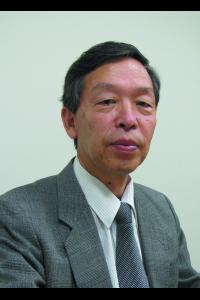It is not known whether metabolism or genetics came first. The main
hypothesis which supports genetics first is the RNA World hypothesis
and the one which supports the metabolism first is the Protein World
hypothesis or otherwise known as Protein Interaction World hypothesis
or GADV- Protein world; which is a hypothetical stage of abiogenesis
which assumes that life emerged as a self-reproducing and expanding
system of protein interactions. The GADV- Protein World hypothesis
was first proposed by Kenji Ikahara in 1985. GADV stands for the one
letter codes of four amino acids, namely, glycine (G), alanine (A),
aspartic acid (D) and valvine (V), the main components of GADV
proteins. In this hypothesis, it is argued that the prebiotic
chemistry before the emergence of genes involved a stage where GADV-
proteins were able to pseudo-replicate. This idea also suggests that
proteins worked as enzymes first, producing metabolism. After that
DNA and RNA began to work as container of genes.
 |
| Kenji Ikahara |
Proteins act as enzyme which is essential for today's lives and some amino acids are formed from more basic chemicals in the Miller-Urey
experiment are some of the evidences which supports the Protein World
hypothesis which make this hypothesis more evolutionarily plausible
and contrary to the mainstream RNA World hypothesis and also has
greater explanatory power.
Comments
Post a Comment